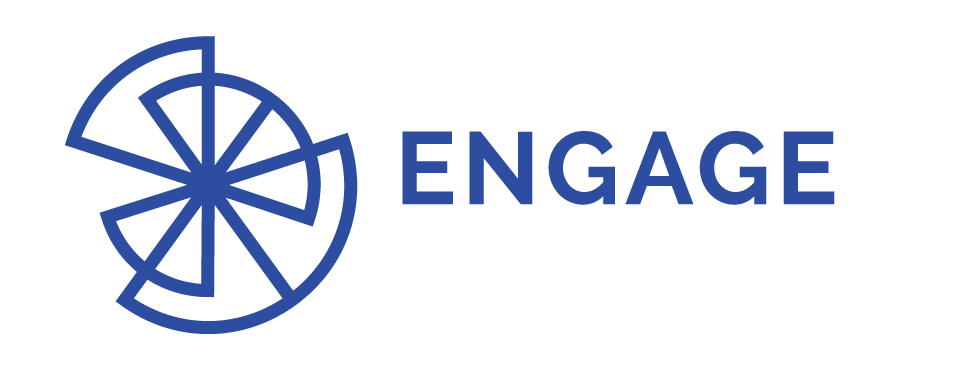
Work Packages
ENGAGE’s work is realised within 12 work packages. In the project’s first phase, WPs2–3 provide a rigorous analysis of the contextual challenges the EU is facing in its external action. The heart of the project is WP10, which will initially define main concepts and indicators and will ultimately synthesise the project’s results into a final policy White Paper providing strategic recommendations to advance the EU’s external action.
Flanking and contributing to WP10 are two clusters of WPs: one on the various policies of EU external action (WPs4–6) and one on the strategic objectives for the EU’s external action (WPs7–9). The project is framed by work packages on management (WP1), dissemination (WP11) and ethics (WP12).
Work Package 1: Management
WP1 is dedicated to the overall management of the project. The objective of the work package is to ensure high quality results through strategic, everyday management of the project. WP1 will also apply a gender mainstreaming approach to the project’s implementation and evaluation.
WP lead: Esade Business & Law School
Work Package 2: Challenges of Global Governance and International Relations
WP2 assesses the challenges of global governance and of international relations that are relevant to the European Union’ security and defence policies as well as its external action. It will comprehensively map out and analyse the interactions between EU external policies and actions, the foreign policies of its Members States and the global environment in which the EU operates today.
WP lead: Leuven Centre for Global Governance Studies
Work Package 3: Challenges of Acceptability
WP3 examines the extent to which past actions within the EU’s Common Security and Defence Policy (CSDP) were acceptable to Member States. It also discusses the conditions under which enhanced action may be deemed necessary and desirable by national decision makers and publics in the future. The WP defines core concepts and theorises the processes through which narratives become permissive or non-permissive, and how these translate into common knowledge in the national context.
WP lead: Institut Barcelona d’Estudis Internacionals
Work Package 4: CSDP
WP4 appraises existing governance structures for CSDP and internal policy areas that have defence implications. It also seeks to develop assessment criteria for the effectiveness, efficiency, coherence and sustainability of defence cooperation, and to assess the degree of coherence between CSDP and Member States’ actions across strategy, operations and capability development for civilian and military missions and operations.
WP lead: International Institute for Strategic Studies & Institut de Relations Internationales et Stratégiques
Work Package 5: CFSP
WP5 ascertains what governance structures are needed for an effective EU Common Foreign and Security Policy (CFSP) beyond CSDP and for enhanced coherence between the EU’s foreign policy and that of its Member States. It aims to provide a comprehensive overview of the existing legal bases and relevant CFSP governance structures, identify ideas for their evolution and assess what prevents CFSP from transforming into united and coherent action. WP5 uses case studies to identify obstacles to an effective CFSP and existing legal instruments to propose concrete recommendations for a stronger CFSP.
WP lead: University of Groningen
Work Package 6: External Action Plus
WP6 seeks to investigate and map the factors – both internal and external – that condition interactions and relationships between and within CFSP/CSDP as well as increasingly important non-CFSP areas of external action, including international trade, development and climate change.
WP lead: The University of Edinburgh
Work Package 7: Engaging with Global Strategic Partners
WP7 analyses the EU’s engagement with global strategic partners, focusing particularly on the fields of security, defence and intelligence cooperation. “Strategic partners” refers to (a) countries with whom the EU has signed strategic partnership agreements (e.g. the United States of America and Russia), (b) countries that are not formally defined as global strategic partners but with whom the EU has multiple and longstanding economic and security engagements (e.g. post-Brexit United Kingdom and Turkey), and (c) key international institutions with which the EU enjoys substantial links (e.g. NATO and the African Union).
WP lead: Sabanci University
Work Package 8: Engaging with the EU’s Neighbourhoods
WP8 scrutinises the notion of “neighbourhood” and its impact on EU policies through a critical and thorough investigation of the EU’s past engagement with its neighbouring regions. It then analyses existing EU objectives, strategies, capacities and capabilities in order to identify neighbourhood- and ENP-specific areas for improvement when it comes to addressing present and future crises in the EU’s “near abroad”.
WP lead: College of Europe (Natolin)
Work Package 9: Engaging in Conflict Resolution, Prevention, and Mediation
WP9 focuses on improving the EU’s capacities and capabilities in conflict resolution, prevention and mediation. Building on a variety of case studies, WP9 assesses the EU’s readiness for engagement and the effectiveness of its joined-up approaches.
WP lead: Leuven Centre for Global Governance Studies
Work Package 10: Strategy and Recommendations for Joined-up, Coherent, Sustainable, and Effective External Action
WP10 develops shared definitions and indicators of effectiveness, coherence and sustainability of EU external action. It will also produce a White Paper that puts forward a strategic vision and recommendations for joined-up, coherent, sustainable and effective EU external action. This will be done by combining the research outcomes of WPs 2–9 with an extensive assessment of strategic documents from multiple action domains of EU external policies.
WP lead: Hertie School
Work Package 11: Dissemination
WP11 generates greater awareness of the improvements to governance structures needed to ensure a comprehensive strategy for joined-up, coherent, sustainable and effective EU external action. This will be achieved by disseminating the research results to the project’s target audiences in a clear and effective manner.
WP lead: Carnegie Europe Foundation
Work Package 12: Ethics Requirements
WP 12 sets out the ‘ethics requirements’ that the project must comply with.
WP lead: Esade Business & Law School













